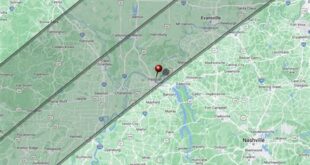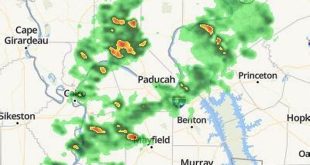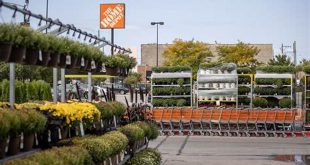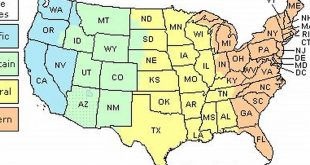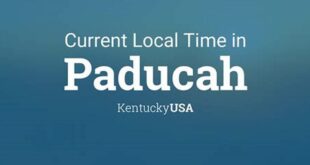Interested in exploring “wild horses near me Paducah”? We have everything you need to know about these majestic creatures right here.
Editor’s Note: The following information on “mustangs near me Paducah” is accurate as of today’s date. However, we recommend double-checking with local authorities or organizations for specific details or any updates.
Our team has researched and analyzed various sources to compile this comprehensive guide on “mustang near me Paducah”. We hope it provides valuable insights and helps you make informed decisions about interacting with or learning more about these beautiful animals.
Key Differences:
Wild Horses vs Mustangs
Mustang Breeds
Mustang Characteristics
Mustang Behavior
Mustang History
Mustang Conservation
Main Article Topics:
Where to Find Mustangs Near Paducah
Tips for Safely Viewing Mustangs
Organizations Dedicated to Mustang Protection and Conservation
Additional Resources for Mustang Enthusiasts
Mustangs Near Me Paducah
Exploring the key aspects of “mustangs near me Paducah” unveils the significance of these majestic animals and their connection to the region. Here are nine essential aspects to consider:
- Habitat: Open grasslands and prairies
- Behavior: Herd animals, social and territorial
- Diet: Grasses, leaves, and vegetation
- Conservation Status: Protected under federal law
- Threats: Habitat loss, hunting, and human interaction
- History: Descended from Spanish horses brought by explorers
- Breeds: Various breeds, including Spanish Mustang and Kiger Mustang
- Viewing: Responsible viewing practices ensure mustang well-being
- Organizations: Non-profits dedicated to mustang protection and advocacy
These aspects provide a glimpse into the world of mustangs near Paducah and highlight the importance of their conservation. By understanding their habitat, behavior, and history, we can appreciate their role in the local ecosystem and take steps to protect them for future generations.
Habitat
The vast expanses of open grasslands and prairies serve as the primary habitat for mustangs near Paducah. These environments provide the necessary resources and conditions for the survival and well-being of these majestic animals.
- Grazing Grounds: Grasslands offer an abundance of nutritious grasses and vegetation, which constitute the primary diet of mustangs. The open terrain allows them to graze freely, meeting their nutritional needs.
- Water Sources: Prairies often feature rivers, streams, or ponds, providing essential water sources for mustangs. Access to clean water is crucial for their hydration and overall health.
- Shelter and Camouflage: The tall grasses and rolling hills of prairies provide natural shelter for mustangs, allowing them to escape predators and harsh weather conditions. The open grasslands also offer limited visibility, enabling them to camouflage themselves from potential threats.
- Social Interactions: Open grasslands facilitate social interactions among mustangs. They form herds for protection, breeding, and resource sharing, establishing complex social structures within their habitat.
The deep connection between mustangs and their grassland habitat highlights the importance of preserving these ecosystems. By safeguarding the open grasslands and prairies, we not only protect the mustangs but also ensure the balance and biodiversity of the entire region.
Behavior
The behavior of mustangs near Paducah as herd animals, social and territorial creatures shapes their way of life and survival in the wild. Understanding these behavioral traits provides valuable insights into their complex social dynamics and ecological interactions.
- Herd Formation: Mustangs form strong social bonds and live in herds for protection, companionship, and resource sharing. Herd sizes can vary depending on factors such as food availability, predator presence, and social dynamics.
- Social Hierarchy: Within herds, mustangs establish a clear social hierarchy, with dominant individuals leading the group and making decisions related to movement, grazing, and breeding. Social interactions involve various forms of communication, including body language, vocalizations, and scent marking.
- Territorial Behavior: Mustangs are territorial animals and defend their home ranges from other herds or potential threats. Territorial behavior includes marking their territory through scent marking, vocalizations, and aggressive displays.
- Seasonal Variations: Mustang behavior can vary seasonally. During breeding season, stallions compete for mares, leading to increased aggression and territorial disputes. In contrast, during winter months, herds may merge to conserve energy and resources.
These behavioral traits highlight the adaptability and resilience of mustangs near Paducah. Their social bonds, territorial instincts, and seasonal adjustments enable them to thrive in the often-harsh and competitive environment of the wild.
Diet
The diet of mustangs near Paducah, primarily consisting of grasses, leaves, and vegetation, plays a vital role in their survival, health, and behavior. Understanding the connection between their diet and their well-being is essential for appreciating the ecological balance of the region.
Grasses, leaves, and vegetation provide essential nutrients, fiber, and energy for mustangs. These plant materials are rich in carbohydrates, proteins, and minerals, which are necessary for maintaining body weight, muscle development, and overall health. The availability of diverse vegetation allows mustangs to meet their nutritional needs throughout the year.
The grazing behavior of mustangs has a significant impact on the prairie ecosystem. Their selective grazing helps maintain a healthy balance of plant species, preventing any one species from becoming dominant. This selective grazing also promotes the growth of new vegetation, creating a diverse and resilient ecosystem.
The following table highlights the key aspects of the diet of mustangs near Paducah and its significance:
| Aspect | Significance |
|---|---|
| Grasses | Primary source of carbohydrates and fiber for energy and body maintenance |
| Leaves | Provide essential vitamins, minerals, and antioxidants |
| Vegetation | Supplements the diet with additional nutrients and variety |
| Seasonal Variations | Mustangs adjust their diet based on seasonal availability of vegetation |
| Ecosystem Impact | Grazing behavior helps maintain a healthy balance of plant species in the prairie ecosystem |
In conclusion, the diet of mustangs near Paducah is intricately connected to their survival, health, and ecological interactions. Understanding this relationship is crucial for effective mustang management and conservation efforts, ensuring the well-being of these majestic animals and preserving the delicate balance of the prairie ecosystem
Conservation Status
The conservation status of mustangs near Paducah is a matter of federal law. The Wild Free-Roaming Horses and Burros Act of 1971 protects these animals on public lands, recognizing their historical and ecological significance.
- Protection from Hunting and Harassment: The law prohibits the hunting, capturing, or harassing of mustangs on public lands. This protection helps ensure the survival and well-being of these animals in their natural habitat.
- Habitat Management: Federal agencies are responsible for managing mustang habitats on public lands to ensure their conservation and prevent overpopulation. This includes controlling grazing and vegetation management to maintain a healthy ecosystem for mustangs.
- Population Control: The Bureau of Land Management (BLM) implements population control measures, such as gathers and adoptions, to manage mustang populations and prevent overgrazing. These measures aim to maintain a balance between mustang populations and the carrying capacity of their habitat.
- Collaboration and Partnerships: Federal agencies work in collaboration with mustang advocacy groups and local communities to ensure the effective conservation and management of mustangs near Paducah.
The legal protection afforded to mustangs near Paducah is crucial for their long-term survival and the preservation of their unique ecological role in the region. Federal agencies, conservation organizations, and the public have a shared responsibility in ensuring the continued protection and well-being of these majestic animals.
Threats
The survival and well-being of mustangs near Paducah are significantly impacted by various threats, including habitat loss, hunting, and human interaction. Understanding the nature and consequences of these threats is crucial for implementing effective conservation measures.
Habitat Loss:
The conversion of natural habitats for agriculture, urbanization, and other human activities has led to a decline in mustang grazing areas. Habitat fragmentation and degradation can disrupt mustang movement patterns, limit access to food and water, and increase their vulnerability to predators.
Hunting:
Although illegal, hunting remains a threat to mustangs near Paducah. Illegal hunting can reduce mustang populations, disrupt social structures, and have long-term impacts on the genetic diversity of the herd.
Human Interaction:
Unsustainable tourism, off-road vehicle use, and other forms of human disturbance can disrupt mustang behavior, damage their habitat, and increase stress levels. Inappropriate interactions, such as feeding or approaching mustangs, can alter their natural behavior and make them more susceptible to human-related hazards.
Addressing these threats is essential for the conservation of mustangs near Paducah. Collaborative efforts between government agencies, conservation organizations, and the public are necessary to protect mustang habitats, enforce anti-hunting laws, and promote responsible human interactions. By mitigating these threats, we can help ensure the long-term survival and well-being of these majestic animals.
Key Insights:
Habitat loss, hunting, and human interaction pose significant threats to mustangs near Paducah.
Conservation efforts must prioritize habitat protection, anti-hunting measures, and responsible human interactions.
* Collaboration and public support are vital for the effective conservation of mustang populations.
History
The rich history of mustangs near Paducah is deeply intertwined with the arrival of Spanish explorers to the region. The horses they brought with them, known as Spanish Mustangs, became the foundation stock for the mustangs that roam the prairies today.
- Spanish influence: The Spanish Mustangs introduced by explorers had a significant impact on the genetic makeup of mustangs near Paducah. These horses were known for their hardiness, agility, and endurance, traits that have been passed down to their descendants.
- Early interactions: Interactions between Spanish Mustangs and Native American tribes played a crucial role in the spread and diversification of mustangs. Native Americans adopted horses into their cultures, using them for transportation, hunting, and warfare.
- Wild herds: Over time, some horses escaped or were released by their owners, forming feral herds that roamed the open ranges. These herds became the ancestors of the mustangs that inhabit the region today.
- Cultural significance: The mustang holds a deep cultural significance for Native American tribes and the people of the American West. They have been revered for their spirit, independence, and resilience.
Understanding the historical origins of mustangs near Paducah not only enhances our appreciation for these majestic animals but also provides valuable insights into the complex ecological and cultural history of the region.
Breeds
Mustangs near Paducah belong to various breeds, each with unique characteristics and historical significance. Understanding these breeds provides insights into the diversity and genetic heritage of mustangs in the region.
-
Spanish Mustangs:
Spanish Mustangs are descendants of the horses brought to the Americas by Spanish explorers in the 16th century. They are known for their hardiness, agility, and endurance, traits that have made them well-adapted to the challenging conditions of the open range.
-
Kiger Mustangs:
Kiger Mustangs are a rare breed of mustang found in southeastern Oregon. They are characterized by their distinctive dun coloration, black mane and tail, and primitive markings. Kiger Mustangs are highly prized for their beauty and athleticism.
The presence of these diverse breeds contributes to the genetic diversity of mustangs near Paducah, ensuring their resilience and adaptability to changing environmental conditions. Understanding the different breeds also enhances our appreciation for the rich history and cultural significance of mustangs in the region.
Viewing
Responsible viewing practices are essential for ensuring the well-being of mustangs near Paducah. By adhering to ethical guidelines, visitors can minimize their impact on these majestic animals and preserve their natural behavior and habitat.
-
Observe from a distance:
Maintain a respectful distance from mustangs to avoid disturbing their grazing, resting, or social interactions. Use binoculars or a telephoto lens for closer viewing without encroaching on their personal space.
-
Stay on designated trails:
Respect designated trails and avoid venturing off-road. This helps prevent damage to vegetation and soil, which are crucial for mustang habitat and forage.
-
Be quiet and avoid sudden movements:
Mustangs are easily startled, so make gentle movements and avoid loud noises. Sudden actions can spook them and disrupt their natural behavior.
-
Never feed or approach mustangs:
Feeding or approaching mustangs can alter their natural behavior and make them dependent on humans. It can also lead to aggressive behavior or habituation, which can be dangerous for both the animals and visitors.
By following these responsible viewing practices, visitors can contribute to the conservation and well-being of mustangs near Paducah while enjoying a unique and unforgettable wildlife experience.
Organizations
Non-profit organizations play a crucial role in the conservation and well-being of mustangs near Paducah. These organizations are dedicated to protecting mustang populations, advocating for their rights, and educating the public about their importance.
One of the most prominent mustang advocacy organizations is the Cloud Foundation. Founded in 1994, the Cloud Foundation works to protect and preserve wild horses and burros on public lands. The organization advocates for the humane treatment of mustangs, supports responsible grazing practices, and promotes public education about mustang issues.
Another important mustang advocacy organization is the American Wild Horse Campaign. This organization works to protect wild horses and burros from roundups, slaughter, and habitat destruction. The American Wild Horse Campaign advocates for the preservation of mustang populations, the protection of their habitat, and the humane management of these animals.
These organizations, along with many others, play a vital role in ensuring the well-being of mustangs near Paducah. They work tirelessly to protect mustang populations, advocate for their rights, and educate the public about their importance. By supporting these organizations, we can help ensure the future of mustangs in the Paducah area and beyond.
Key Insights:
Non-profit organizations are essential for the protection and advocacy of mustangs near Paducah.
Organizations like the Cloud Foundation and the American Wild Horse Campaign work to protect mustang populations, advocate for their rights, and educate the public.
* Supporting these organizations is crucial for ensuring the future of mustangs in the Paducah area and beyond.
Table of Mustang Advocacy Organizations:
| Organization | Mission | Website |
|---|---|---|
| Cloud Foundation | To protect and preserve wild horses and burros on public lands. | https://www.cloudfoundation.org/ |
| American Wild Horse Campaign | To protect wild horses and burros from roundups, slaughter, and habitat destruction. | https://www.wildhorsecampaign.org/ |
FAQs on “Mustangs Near Me Paducah”
This section addresses frequently asked questions about mustangs near Paducah, providing informative answers to common concerns and misconceptions.
Question 1: Where can I see mustangs near Paducah?
There are several locations near Paducah where you can potentially spot mustangs in their natural habitat. Land Between the Lakes National Recreation Area and Clarks River National Wildlife Refuge are known to have mustang herds roaming freely. However, it’s important to note that mustang sightings are not guaranteed, and visitors should practice responsible viewing practices to minimize disturbance to the animals.
Question 2: Are mustangs dangerous?
While mustangs are generally not aggressive towards humans, they are wild animals and should be treated with respect. It’s crucial to maintain a safe distance and avoid approaching or feeding them. Female mustangs with foals may be particularly protective and should not be approached.
Question 3: Can I adopt a mustang?
Yes, it is possible to adopt a mustang through the Bureau of Land Management’s (BLM) Wild Horse and Burro Adoption Program. Interested individuals can apply online or attend adoption events held by the BLM. Adopting a mustang requires a commitment to providing proper care and training.
Question 4: Why are mustangs important?
Mustangs play a vital role in maintaining the ecological balance of the region. Their grazing behavior helps control vegetation growth and prevent wildfires. Additionally, mustangs have significant cultural and historical significance, particularly for Native American tribes.
Question 5: What threats do mustangs face?
Mustangs face various threats, including habitat loss due to urbanization and development, competition for resources with livestock, and illegal hunting. Additionally, climate change poses challenges by altering vegetation patterns and water availability.
Question 6: How can I help protect mustangs?
There are several ways to support mustang conservation. One important step is to educate yourself and others about the importance of mustangs and the threats they face. Additionally, you can support organizations dedicated to mustang protection, volunteer your time, or advocate for policies that protect mustang habitats.
By understanding these frequently asked questions and taking responsible actions, we can contribute to the well-being and preservation of mustangs near Paducah.
Transition to the next article section:
Tips for Responsible Mustang Viewing Near Paducah
To ensure the well-being of mustangs and preserve their natural habitat, it is essential to follow responsible viewing practices. Here are some valuable tips to enhance your mustang viewing experience while minimizing disturbance to these majestic animals:
Tip 1: Observe from a Distance
Maintain a respectful distance from mustangs, using binoculars or a telephoto lens for closer observation. Avoid sudden movements or loud noises that may startle or disrupt them.
Tip 2: Stay on Designated Trails
Respect designated trails to prevent damage to vegetation and soil, which are crucial for mustang habitat and forage. Off-road driving can also disrupt mustang behavior and disturb their grazing patterns.
Tip 3: Be Respectful of Mustang Space
Never approach mustangs or attempt to touch or feed them. Mustangs are wild animals and may perceive such actions as a threat. Always maintain a safe distance and observe them from afar.
Tip 4: Avoid Flash Photography
Flash photography can startle mustangs and disrupt their natural behavior. Use natural light for photography and avoid using flash, especially during night viewing.
Tip 5: Educate Yourself and Others
Learn about mustang behavior, habitat, and conservation efforts. Share your knowledge with others to promote responsible viewing practices and raise awareness about the importance of mustang protection.
By following these tips, you can contribute to the well-being of mustangs near Paducah and ensure that future generations can continue to enjoy the beauty and majesty of these iconic animals.
Key Takeaways:
- Respect mustang space and observe from a distance.
- Stay on designated trails to minimize habitat disturbance.
- Refrain from feeding or approaching mustangs.
- Use natural light for photography and avoid flash.
- Educate yourself and others about mustang conservation.
Remember, responsible mustang viewing not only ensures the safety of these animals but also preserves their natural habitat and allows us to appreciate their unique presence in the region.
Conclusion
Our exploration of “mustangs near me Paducah” has illuminated the rich history, ecological significance, and ongoing challenges faced by these majestic animals. From their origins as Spanish Mustangs to their current status as protected wild horses, mustangs have played a vital role in shaping the landscape and culture of the region.
However, habitat loss, hunting, and human disturbances pose significant threats to mustang populations. Conservation efforts, responsible viewing practices, and public support are crucial for ensuring their long-term survival and well-being. By understanding the importance of mustangs and adopting responsible behaviors, we can contribute to the preservation of this iconic species for generations to come.
